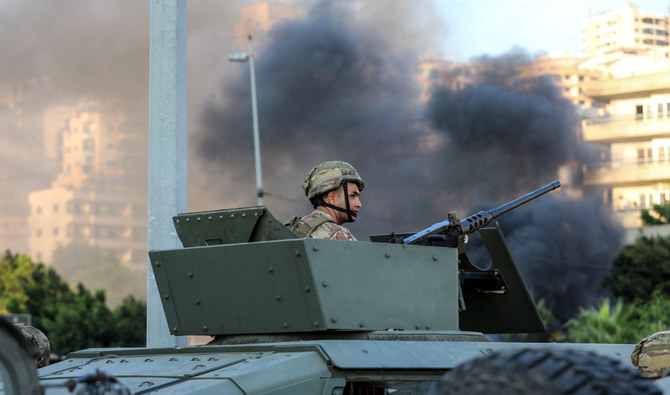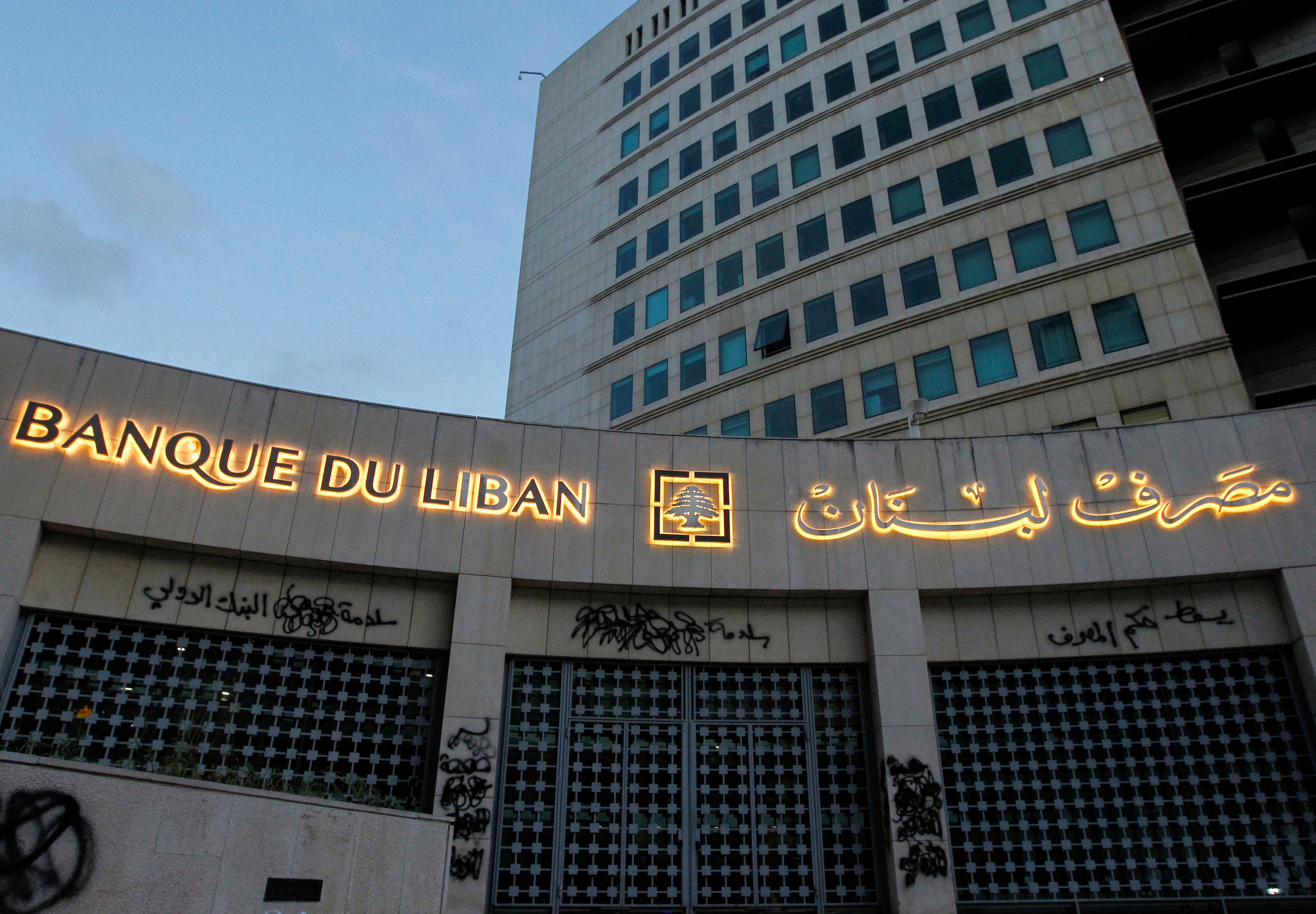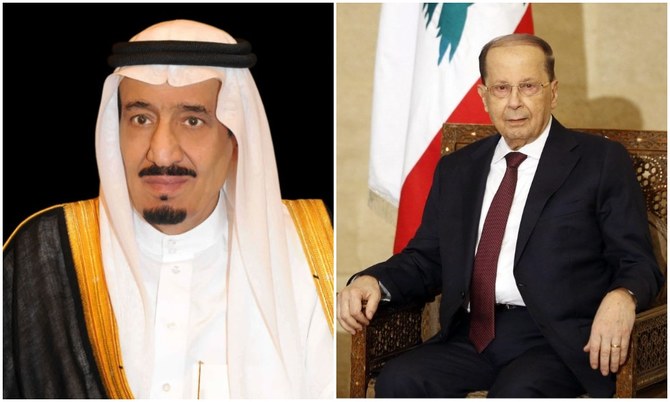في ذكرى تأسيس امن الدولة نثمن دور قيادتها وضباطها وافرادها ونتمنى تفعيل دورها لتنفيذ المهمات التي عهدت لها وفق قانون انشائها

Rome (Agenzia Fides) – The Armenian Catholic Synod of Bishops, convened by the Holy Father in Rome on September 22nd, 2021, elected the new Patriarch of Cilicia of the Armenians on Thursday, September 23rd. It is Raphaël François Minassian, currently titular Archbishop of Caesarea in Cappadocia and bishop for the Armenian Catholic faithful of Eastern Europe. The newly elected has adopted the name Raphaël Bedros XXI Minassian. The new Armenian Catholic Patriarch was born in Beirut on November 24, 1946. He completed his studies at the Patriarchal Seminary of Bzommar (1958-1967) and studied Philosophy and Theology at the Pontifical Gregorian University (1967-1973). At the Pontifical University of the Salesians, he completed a specialization course in psycho-pedagogy. He was ordained a priest on June 24, 1973. From 1973 to 1982 he was parish priest of the Armenian Cathedral of Beirut, from 1982 to 1984 Secretary to Patriarch Hovannes Bedros XVIII Kasparian, and from 1984 to 1989 responsible for the establishment of the parish complex of the Holy Cross of Zalka, Beirut.
From 1975 to 1989, Raphaël François Minassian was a Judge at the Ecclesiastical Tribunal of the Armenian Church in Beirut. He taught Armenian liturgy at the Pontifical University of Kaslik from 1985 to 1989 and in 1989 was transferred to the United States of America, where he worked as a parish priest in New York for a year. He then worked as parish priest for the Catholic Armenians in California, Arizona and Nevada until 2003. Since 2004, Minassian has been running Telepace Armenia, of which he is the founder. In 2005 he was appointed Patriarchal Exarch of Jerusalem and Amman for the Armenians. On 24 June 2011 he was appointed Ordinary for the Catholic Armenian Faithful of Eastern Europe. The Holy Father gave him the titular seat of Cesarea in Cappadocia for the Armenians and the title of Archbishop ad personam. (GV) (Agenzia Fides, 24/9/2021)
BEIRUT, (Xinhua) — The Lebanese army on Saturday received 13 tonnes of food products from Italy through Beirut’s airport, the army reported in a tweet. The donation comes at a time when Lebanon’s military is facing serious challenges amid the ongoing financial crisis in the country. Leaders in the country have warned that the military […]
by english.alaraby.co.uk – A television series that shares the stories of 15 people caught in the devastating Beirut Port explosion last year has been nominated for an Emmy Award. ‘Beirut 6:07’ – which refers to the time the massive blast took place on 4 August – is nominated under the Short-Form Series category. The International […]
حذار من تهجير اللبنانيين مرة جديدة تضاف الى سابقاتها حذار من الغاء اشراك اللبنانيين المنتشرين في الخارج في الانتخابات والنيابية واعادة تسميتهم مغتربين، حذار من الاكتفاء بدعوتهم فقط لارسال الودائع والاموال من مداخيلهم لدعم الجمعيات والمنكوبين وعائلاتهم، يكفي لبنان عزلته عن المجتمع الدولي حتى نعزله عن اهله، جناحه الثاني المنتشر في انحاء العالم

by arabnews.com — Najia Houssari — BEIRUT: The Lebanese army has ‘redeployed’ soldiers away from several regions, notably Beirut’s southern suburbs, with its command saying in a statement that the redeployment is intended “to reduce the economic burdens on the army.” The military has been struggling due to Lebanon’s economic meltdown. In his notorious speech in March, Joseph Aoun, commander of the Lebanese Army, said: “Soldiers are struggling like other people; a soldier’s salary has lost its value and soldiers are going hungry like others.” Aoun, who is currently visiting Turkey, met with his Turkish counterpart and other officials on Friday and requested logistical support, including equipment and machinery. He will also visit Washington at the end of September to ask for direct American aid and promises of military assistance for the Lebanese army. In recent months, some soldiers have deserted as the depreciation of the Lebanese pound has seen the relative value of their salaries plummet to the equivalent of $60 per month. Army command claims the number of deserters is “limited.”
Residents of the Lebanese capital’s southern suburbs were surprised when the army withdrew its forces from checkpoints in the area. Soldiers have been deployed there since 2013, when the suburbs were targeted by bombings that were blamed on Daesh, and seen as connected to the war in Syria and Hezbollah’s interference in the interests of Syrian President Bashar Assad’s regime. Lebanese army command stressed on Friday that its troops would “continue to set up observation points in all areas, work on patrols, and carry out security missions.” Meanwhile, dozens of families of victims of the August 2020 explosion in Beirut Port gathered in the capital to protest against the political pressure being placed on Judge Tarek Bitar, who is leading the investigation into the blast. Bitar was recently threatened by Hezbollah and, on Friday, the attorney representing Nohad Machnouk, the former interior minister who is accused in the case, filed a request to dismiss Bitar from the investigation. If Bitar were to be dismissed from the case, he would be the second judge to have been removed from the investigation. Like his predecessor, Judge Fadi Sawan, Bitar has issued a subpoena for a former prime minister, ministers and security officials in connection with the explosion..
BEIRUT (AP) Zena Karam — The reverberations of terrorism across the oceans and war in their own neighborhood have left Lebanon and its fellow nations in the Middle East struggling with the consequences, Lebanon’s president said Friday, calling for international help to save his own crisis-hit country. With Lebanon mired in an unprecedented economic and financial meltdown, President Michel Aoun told the U.N. General Assembly’s meeting of world leaders that the country could not rise without assistance from the global community. Lebanon is in the grips of multiple crises that exploded in succession beginning in late 2019, largely caused by decades of corruption and mismanagement by the country’s ruling class. A currency crash has plunged about three quarters of the population into poverty in the past year and triggered a brain drain not seen since its 1975-90 civil war days. That has been accelerated by the coronavirus pandemic and a massive explosion at the port of Beirut in August 2020 that killed more than 200 people and destroyed parts of the city. Hundreds of thousands of refugees from neighboring Syria have put an additional strain on the tiny Mediterranean country.
The international community has refused to offer financial assistance before Lebanese leaders undertake critical reforms and stamp out endemic corruption. Aoun described the recent formation of a new government in Lebanon after more than a year of political paralysis a “promising step on the road to recovery,” and appealed for the world’s help. “We now look to the international community to finance vital projects in the public and private sectors in order to revive the economy and create job opportunities,” he said. Aoun also said Lebanon welcomes any international effort to rehabilitate and develop Beirut’s port following the catastrophic Aug. 4. 2020 explosion. The blast happened when a fire ignited hundreds of tons of ammonium nitrates that had been haphazardly stored for years at a port warehouse.

by AFP — After repeating previous criticism of Lebanon’s political class, Macron told Mikati it was “urgent to implement measures and essential reforms” and that Lebanon “could count on” former colonial power France for support. The reforms should include tackling power and other infrastructure problems, improving public finances, reducing corruption, and stabilising the banking system, he said. Mikati said he had come to the French capital to reassure Macron that he and his new government, approved by the Lebanese parliament on Monday, were committed to reforming. “I expressed my determination to implement … the necessary reforms as soon as possible in order to restore confidence, to give hope and reduce the suffering of the Lebanese population,” he said. He also vowed to respect the country’s political timetable and hold general elections next year.
The billionaire’s nomination has brought an end to 13 months of political deadlock since an August 2020 blast that killed at least 214 people and devastated swathes of the capital Beirut. An economic meltdown since then has depleted central bank reserves, devalued the currency by more than 90 percent and plunged three out of four citizens below the poverty line, while those who can are emigrating by the thousands. France has led the international response to the tragedy, organising three international conferences devoted to Lebanon and delivering aid in exchange for promises of political reform and accountability. Macron travelled to Lebanon two days after the blast, and returned for a second trip.

DUBAI, (Reuters) – Lebanon bond investors could see their holdings slashed by 75%, Goldman Sachs said, should the newly formed government solve losses in the financial system, embark on credible reforms and unlock funding from the International Monetary Fund. Lebanon defaulted on its international debt in March 2020, after years of political upheaval and economic mismanagement left it unable to service a debt burden that Goldman Sachs estimated at over 300% of GDP at current market exchange rates. After a year of political deadlock, a new government was formed this month under Sunni Muslim tycoon Najib Mikati, with three-quarters of the population now in poverty after one of the deepest depressions of modern history. “The ratification by parliament of the Mikati government on Monday represents the first step on a long and narrow path to Lebanese economic recovery that is likely to be fraught with difficulty and risk”, Goldman said in a report this week.
The bank’s debt recovery projections are based on assumptions including a strengthening of the Lebanese pound to 8,000 to the dollar in the medium term from around 14,500 in the parallel market currently, as well as negative or low real interest rates on public debt, and certain levels of economic growth and fiscal balance adjustment. “Given these assumptions and constraints, we arrive at an estimated haircut to the nominal value of the current Eurobonds of 75%”, it said. Resolving losses in the financial system will be the government’s first challenge, Goldman said, estimating foreign exchange liabilities in the banking sector at $70 billion, against $13 billion in usable reserves at the central bank.

By NAJIA HOUSSARI — arabnews.com — BEIRUT: Lebanon’s President Michel Aoun congratulated King Salman on the occasion of Saudi National Day, praising his efforts to “strengthen Arab solidarity, which is what we need the most today to address the challenges facing our region and the world.” Aoun stressed “the brotherly ties between Saudi Arabia and Lebanon, since the era of King Abdulaziz Al-Saud, who laid the foundation for unity and convergence, the values that your Kingdom has remained committed to toward our nation and people.” His warm comments follow recent statements where Aoun expressed his rejection “for Lebanon to be the source of anything that might offend or harm Saudi Arabia and Gulf countries,” after the Saudi government’s decision in April to ban the entry of Lebanese fruits and vegetables into or via its territories over drug smuggling. Meanwhile, Prime Minister Najib Mikati’s government obtained the parliament’s vote of confidence this week, based on the ministerial statement that stressed the need to “promote the Lebanese relations with Arab countries, activate the historic cooperation among Arab countries and urge Arab brothers to support the Lebanese during these difficult times.”
Aoun is expected to deliver via video a speech on Friday at the UN General Assembly in New York from his office, to express “Lebanon’s position regarding local and regional developments as well as the topics on the session’s agenda.” Mikati headed to Paris on Thursday, his first official visit after the formation of the government, and is expected to meet French President Emmanuel Macron on Friday. France exerted intense pressure on Lebanese politicians to form a government in line with the initiative launched by Macron in the aftermath of the Beirut blast, which rocked the country last August. On the eve of Mikati’s visit to the French capital, the International Support Group for Lebanon welcomed the formation of the new government and the parliament’s vote of confidence in the administration and its program.




